This week's story contains:
-Something about Chinese Medicine
-Some political history
-A hot-tea experience with Biyi's mom
and
-A load of random conversations between Elephant Room's two hosts, Biyi ![]() and Yan
and Yan![]() .
.
It was a sweltering hot day in June.
After a morning running around under the sun, me and Yan decided to go back to my house to do some work. When we stepped in, we said hi to my mom who was cooking in the kitchen, and went straight to the fridge to pour ourselves big glasses of ice water (or, more precisely, a big glass full of ice cubes topped with a little water) - Damn! That was EVERYTHING we’d asked for at that moment.
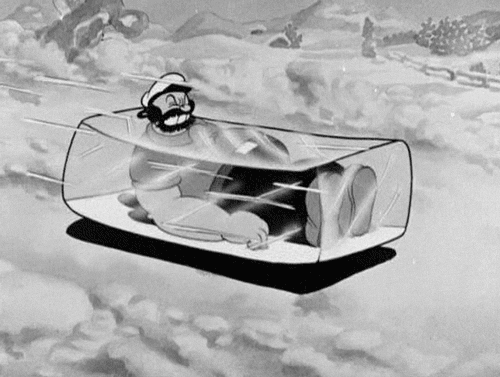
We took the water to the dining room, placed them next to our laptops and got ready to work (I am skipping the procrastinating part here…). “Wait, I need to change into something more comfortable…” Loathing the sweaty outfit sticking to my body, I excused myself to my bedroom to change.
(5 minutes later)
When I came out and walked back to the dining table, I immediately noticed something was different -
The two glasses of cooling, refreshing, life-saving ice water we just poured were replaced by two cups of – guess what - piping hot, steamy Chinese tea.

“What the heck?!” I frowned. “Shhhhhh!” Yan murmured to me, quietly nodding to the direction of the kitchen. “your mom just came out and gave me a BIG lecture on the viciousness of ice water, she took away the glasses and poured tea for us instead.”
I took up the tea cup to get a sip, my tongue was flustered by the hot temperature right away.
“THIS . IS . FREAKING . HOT!!!”
–
The experience that day got us to think. Why was my mom so insistence on us drinking hot tea even when the temperature was over 30 degrees, and why – talking about ourselves – so used of consuming ice cold drinks? (yes, we'd occasionally scooping a bowl of Ben & Jerry’s next to the heater in a chilled winter night too…)
You might think the answer is obvious, but we saw this as one of those elephant room topics that deserves a bit more thinking. Yes, the Chinese in general have a much more enduring love for hot water than the westerners, but why? What are the phenomenon’s historical contexts and how should we understand it from cultural, social, political and economic perspectives? (and more practically, next time when my mom nags me again about ice drinks and ice-creams, how can I fight back with a sound argument backed by evidences?)
Let’s delve in and see if we could deconstruct the obvious.
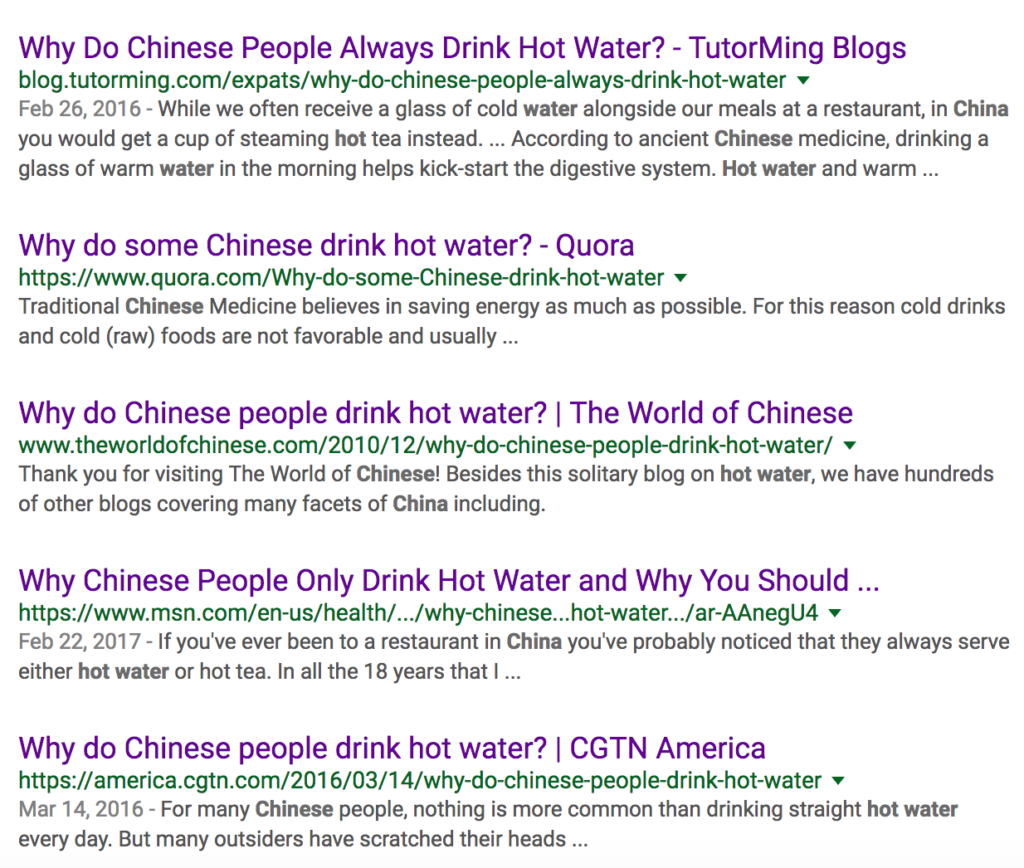
Looks like we are not the only curious ones here...
The Reason of Love
Why exactly does the Chinese love hot water so much?
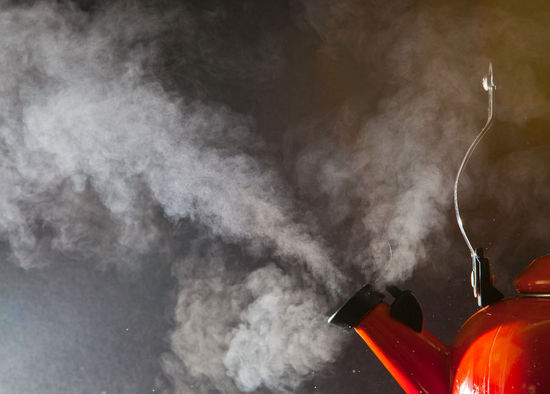
Health wise...
The most-cited explanations, as appeared in both Chinese and English sources, all point to health and medical concerns (We’d try our best to present the wits in an organized manner, but honestly, Chinese Medicine is such a deep and confusing field that we haven’t got the hang of yet...).
From a super duper vague and generalized level, Traditional Chinese Medicine believes that hot temperature can form a stronger “Qi” around us. It acts as this invisible (from the “objective-world” angle) shield that saves energy and hence restoring the overall balance of the body (balance=healthy, duh).
From a more “scientific” (we are talking about modern science as we know today) perspective, Chinese medicals believe that drinking/eating hot food/fluids greatly aids digestions. Our stomach, in this theory, performs the best when it is in a warm and mild condition (oppositely, consuming cold or raw foods would upset the stomach and makes one feel bloated and tired). A happy digestive system means happy blood flow (don’t exactly know how the mechanism works though…), and as our blood circulation increases, it helps to "detoxify" our body and to do all sorts of great things from reducing muscle pains, relieving period cramps to curing sore throats and even preventing cancers.
So, speaking from the most basic understanding, drinking hot water, especially in hot days, keep our body in balance and orderly. Ice water/soda/ice creams/frozen yogurt might help us instantly “feel” cool, but that cooling effect is short-term and one-off. In the long run, it distorts your health as a whole, messes everything up and make you feel sick in many unexpected ways.
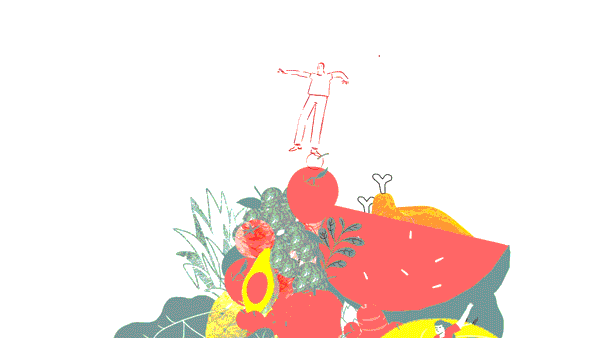
Yep, the drill is all about balance.
![]()
Yan: This is EXACTLY why I have problem with Traditional Chinese Medicine. What you just laid out are not scientific facts but merely observational claims! What does “distorting health” and “feeling sick” even mean explicitly?
![]() Biyi: Well, to argue about whether TCM is science or not would require reexamining both terms accompanied by oceans of professional research, you know...
Biyi: Well, to argue about whether TCM is science or not would require reexamining both terms accompanied by oceans of professional research, you know...
Politics wise...
In the 1930s, the government of Republic of China advocated the New Lifestyle Movement nationwide. In order to unit people under a centralized ideology, the head of government Chiang Kai-shek encouraged people to take on a regulated and clean lifestyle with ordinary matters from food, clothing, shelter to action. Under this doctrine, many people started to pay extra attention to purify their water (by boiling) on a regular basis.
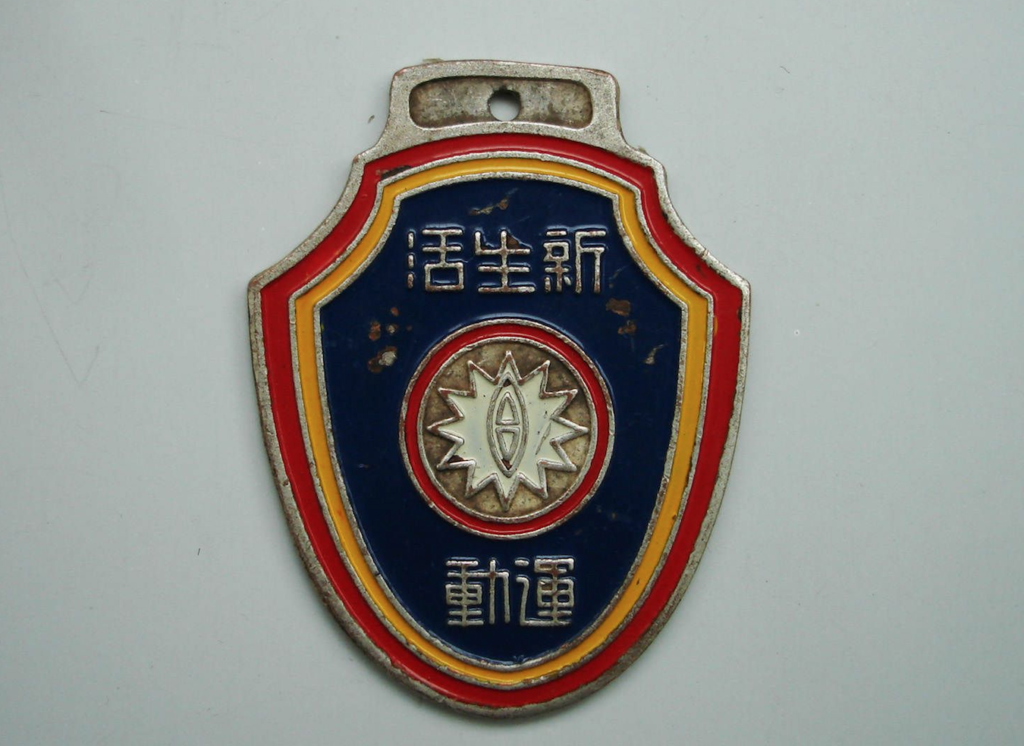
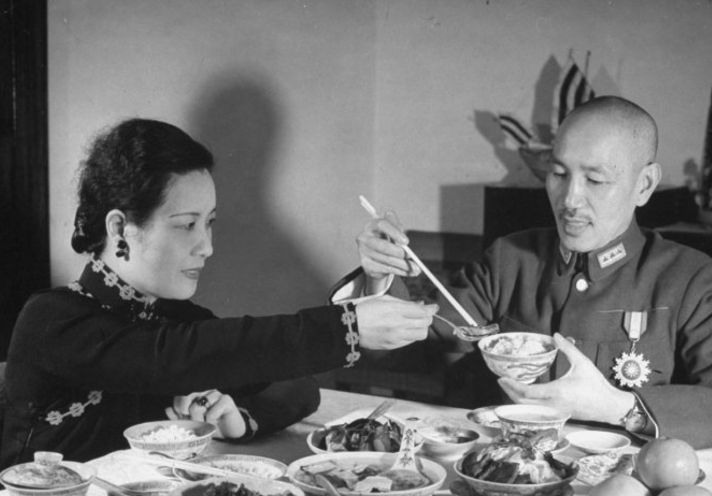
The New Lifestyle Movement called for hygiene and sanitation for the sake of ethnicity and national morale.
After The Communist Party came to power, in 1952, Mao ordered for the Patriotic Health Campaign after report about the American germ-warfare in North Korea.
Here’s where things got a bit blurry – basically, the national newspaper People’s Daily explicitly claimed that there were eyewitness accounts of Americans spraying germs in China to cause local epidemics, and everyone was called to improve personal hygiene for the sake of public health. Sanitizing drinking water by boiling, in this case, became as much as about personal wellbeing as it was about national sovereignty and patriotism.
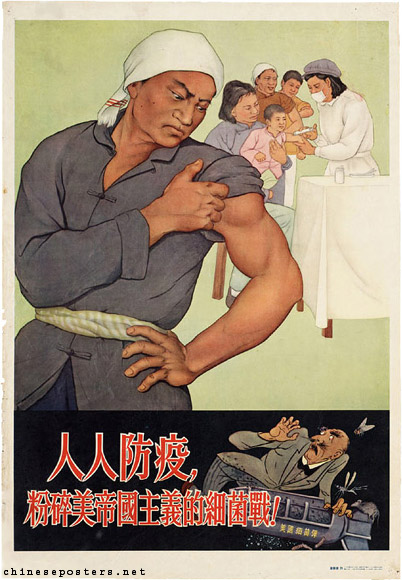
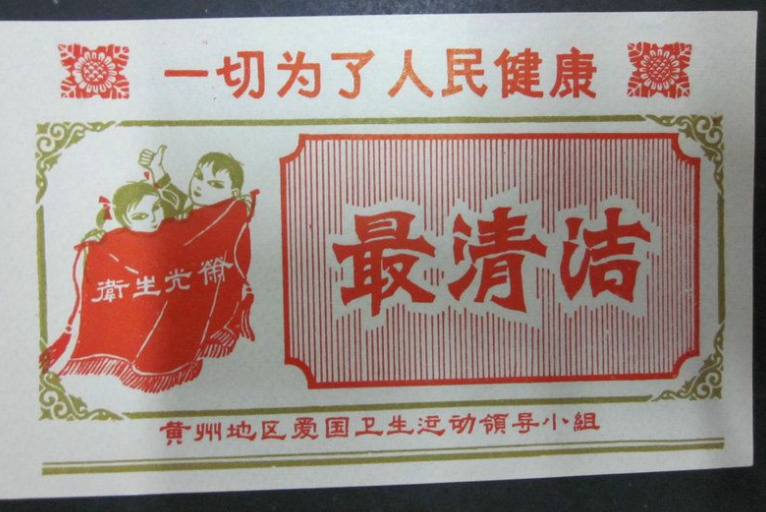
Posters of the Patriotic Health Campaign.

"Boiled-water room水房" is a must-have for most of the government-owned buildings in China.
![]()
Yan: I don’t think your mom was thinking about fighting against American imperialism when she took away our ice water…
![]() Biyi: Certainly not, but isn’t it fascinating to learn about these histories? It really shows that everything personal is political, even for something as trivial as drinking hot water…
Biyi: Certainly not, but isn’t it fascinating to learn about these histories? It really shows that everything personal is political, even for something as trivial as drinking hot water…
Speaking About Love...
Drinking hot water might be all about health or politics for China’s older generations, yet for today’s Chinese teens who grew up online, many came to understand “drink hot water” as a teasing joke.
Who are being teased? The slow-witted, uncommunicative Chinese boyfriends who apparently don’t quite know how to speak about, well, love.
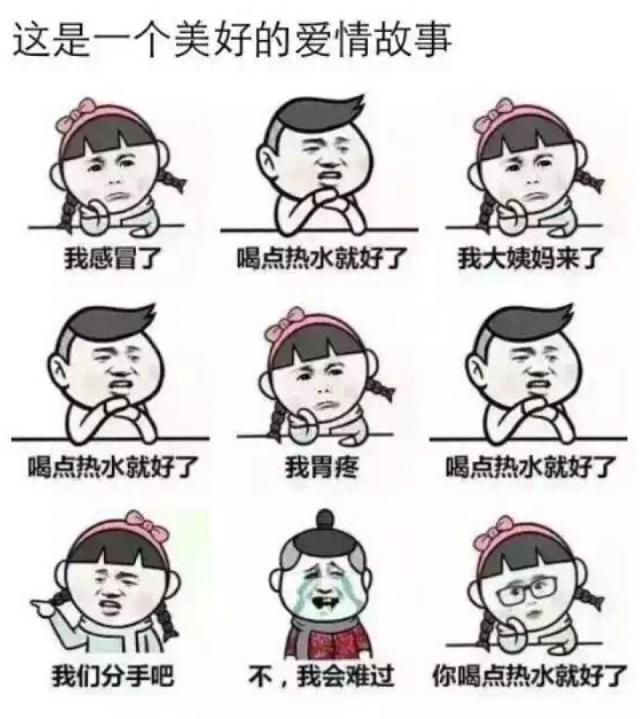
Girl: Honey, I am having a cold.
Boy: Drink more hot water.
Girl: I’m having a period cramp.
Boy: Drink more hot water.
Girl: I’m having a stomachache.
Boy: Drink more hot water.
Girl: I’m over us. I want to break up.
Boy: That hurts!
Girl: Just drink more freaking hot water!

A trending post from sohu.com, “Having period cramp but all your boyfriend does is asking you to drink hot water? You might be dating a fake boyfriend!”
According to online sources, after a girl posted her “my boyfriend-only-cares-me-by-asking-me-to-drink-hot-water” story on social media, it quickly drew resonances from thousands of Chinese girls with similar experiences.

As the above title shows, there was even a survey stating that “drink hot water” ranked as the NO.1 “most-hatred boyfriend replies” in the minds of their Chinese girlfriends (FYI, the rest nine are “what’s the matter with you”, “hehe”, “talk later”, “it was all my fault”, “whatever”, “you still there?” “Have you eaten?”, “go work” and “sleep early”. You are welcome!).

A guy asking for help, “How should I show my concern for my girlfriend when she’s sick? She complained that all I say is drinking hot water, but what else can I say?”
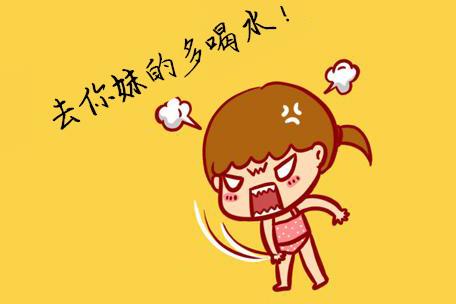

"ENOUGH HOT WATER!!!"
(FYI, we are talking everything in the context of straight relationships here)
![]() Biyi: WHAT.THE.HECK. I feel so sorry for the boyfriends…
Biyi: WHAT.THE.HECK. I feel so sorry for the boyfriends…
![]() Yan: Why sorry? I think it's indeed very annoying if your partner doesn't know any other way to express love and concern except asking you to drink hot water...
Yan: Why sorry? I think it's indeed very annoying if your partner doesn't know any other way to express love and concern except asking you to drink hot water...
![]() Biyi: But what else can they say? Physical pain/illness is a personal matter, there's really nothing much the boyfriend could do unless he is a doctor!
Biyi: But what else can they say? Physical pain/illness is a personal matter, there's really nothing much the boyfriend could do unless he is a doctor!
![]() Yan: That I don't agree. Honestly, it only shows that these guys don't care enough. Your girlfriend is already feeling unwell, and you are not even bothered to tell her how much you care/love her expecting texting back the brainless "drink more hot water"?!
Yan: That I don't agree. Honestly, it only shows that these guys don't care enough. Your girlfriend is already feeling unwell, and you are not even bothered to tell her how much you care/love her expecting texting back the brainless "drink more hot water"?!
![]() Biyi: I understand that sincere communications is important for any intimate relationship, but think this - why are the Chinese guys not complaining? Just the girls?
Biyi: I understand that sincere communications is important for any intimate relationship, but think this - why are the Chinese guys not complaining? Just the girls?
![]() Yan: ...Because their girlfriends put more efforts in communication? Also men don't have to deal with annoying menstrual cramps every month!
Yan: ...Because their girlfriends put more efforts in communication? Also men don't have to deal with annoying menstrual cramps every month!
![]() Biyi: Well I personally think that, when it comes to dating, some Chinese just don’t share the Western expectation of two people being equal and mutually-dependent. In fact, a lot of Chinese girls would project super high expectations on their partners, demanding things from houses to handbags to, you know, more diverse ways of expressing love rather than just telling them to drink hot waters…
Biyi: Well I personally think that, when it comes to dating, some Chinese just don’t share the Western expectation of two people being equal and mutually-dependent. In fact, a lot of Chinese girls would project super high expectations on their partners, demanding things from houses to handbags to, you know, more diverse ways of expressing love rather than just telling them to drink hot waters…
![]() Yan: Wow wow wait a minute, I think you are going way too far here...
Yan: Wow wow wait a minute, I think you are going way too far here...
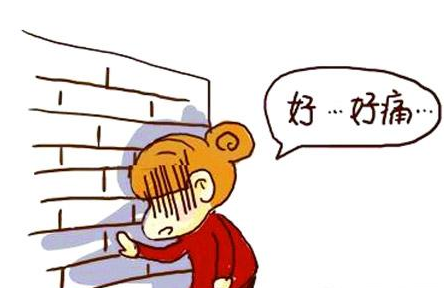
Enough about the boyfriends, now let's move on...
When I came home last night, my mom was, like most of the time, making and drinking Chinese tea in the living-room. Since I sneakily featured her story in the beginning of this article, I thought it was only fair to sit down with my mom for a heart-to-heart on the matter of, you guessed it, hot water.
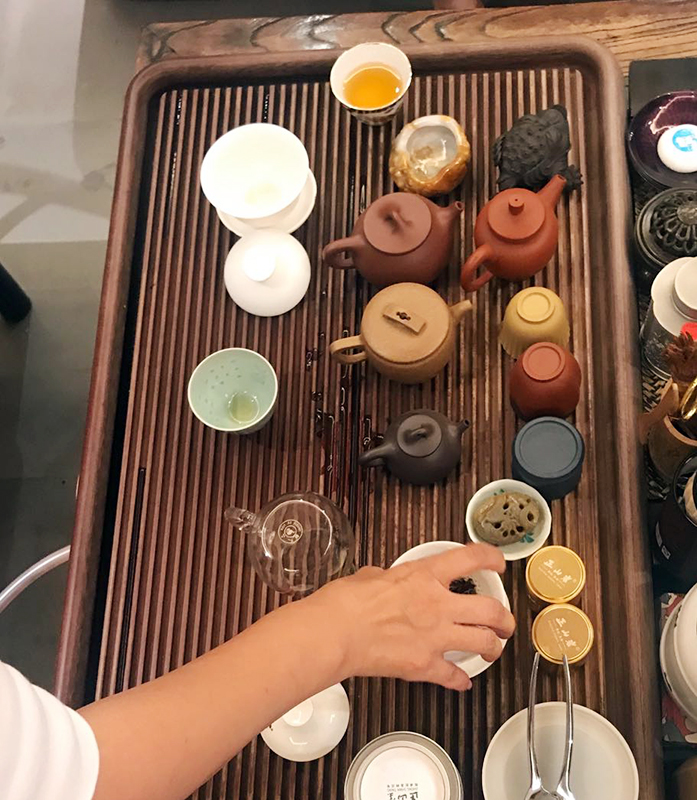 Mom playing around with her tea toys.
Mom playing around with her tea toys.
Me: “So, mom, why are you so insistent on me NOT drinking ice water? Didn't you eat ice-cream when you were young?”
“Of course I did! When I was your age, I absolutely loved everything cold especially ice-creams in summer. But my body has changed drastically since I fell in love with tea. The more I drink and understand about tea, the more I began to appreciate the power of heat and hot water - when I feel hot or thirsty, drinking something hot calms me down from the inside, whereas ice water numbs my senses and make me feel sick afterwards. Maybe it's an age thing, I don't know, but I definitely believe hot water is milder and hence cares your body better - if you could start caring yourself now, why wait?”
Well, Beijing's weather has been crazy hot recently and I don't think I have the willpower to quit ice-creams, iced coffee and iced diet coke altogether just yet. But drinking more tea while learning some cool tea-making tricks from my mom does sound quite good - I might work on my relationships with hot water from there, too.
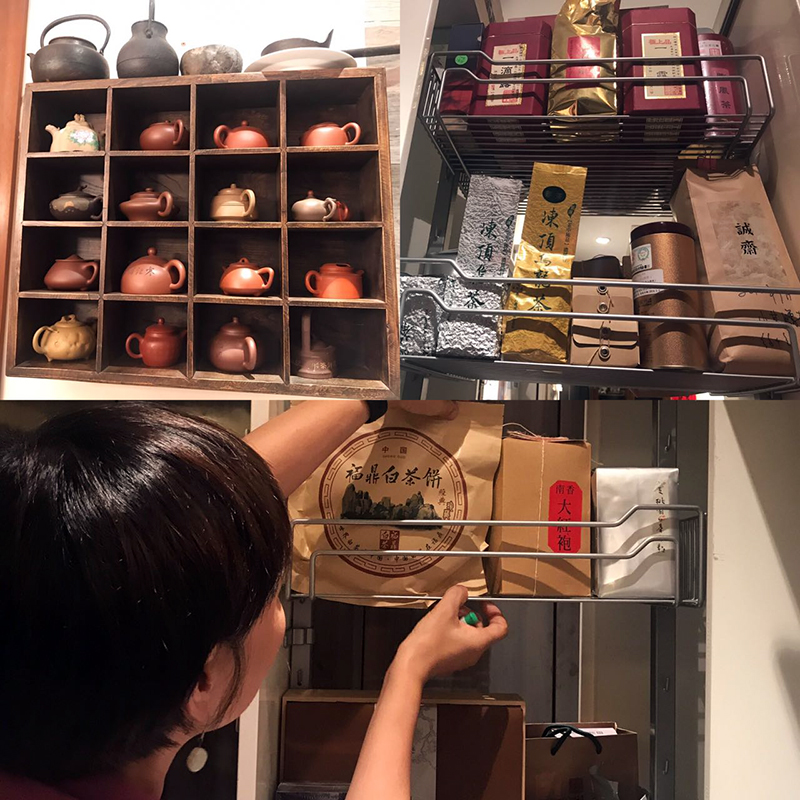
My mom insisted to feature some of her teas - "seriously, how can someone NOT like a cup of steamy hot tea?!"
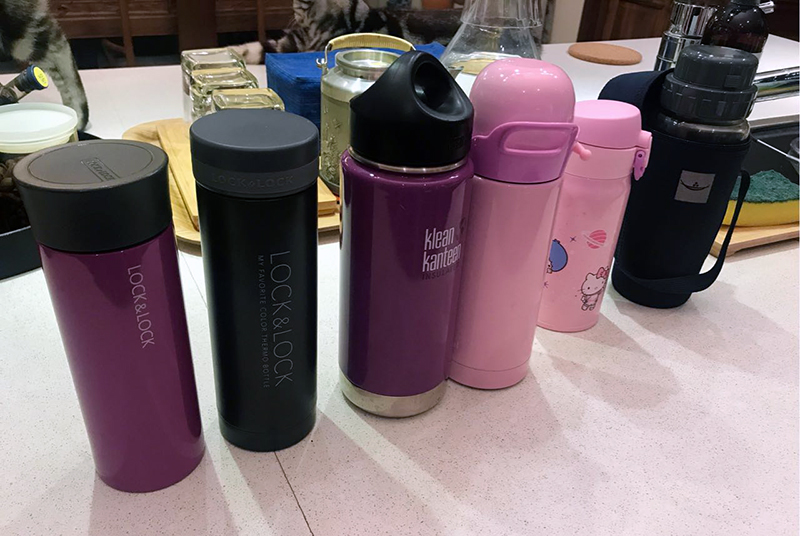
And she proudly showed some of her thermal bottles for hot water...
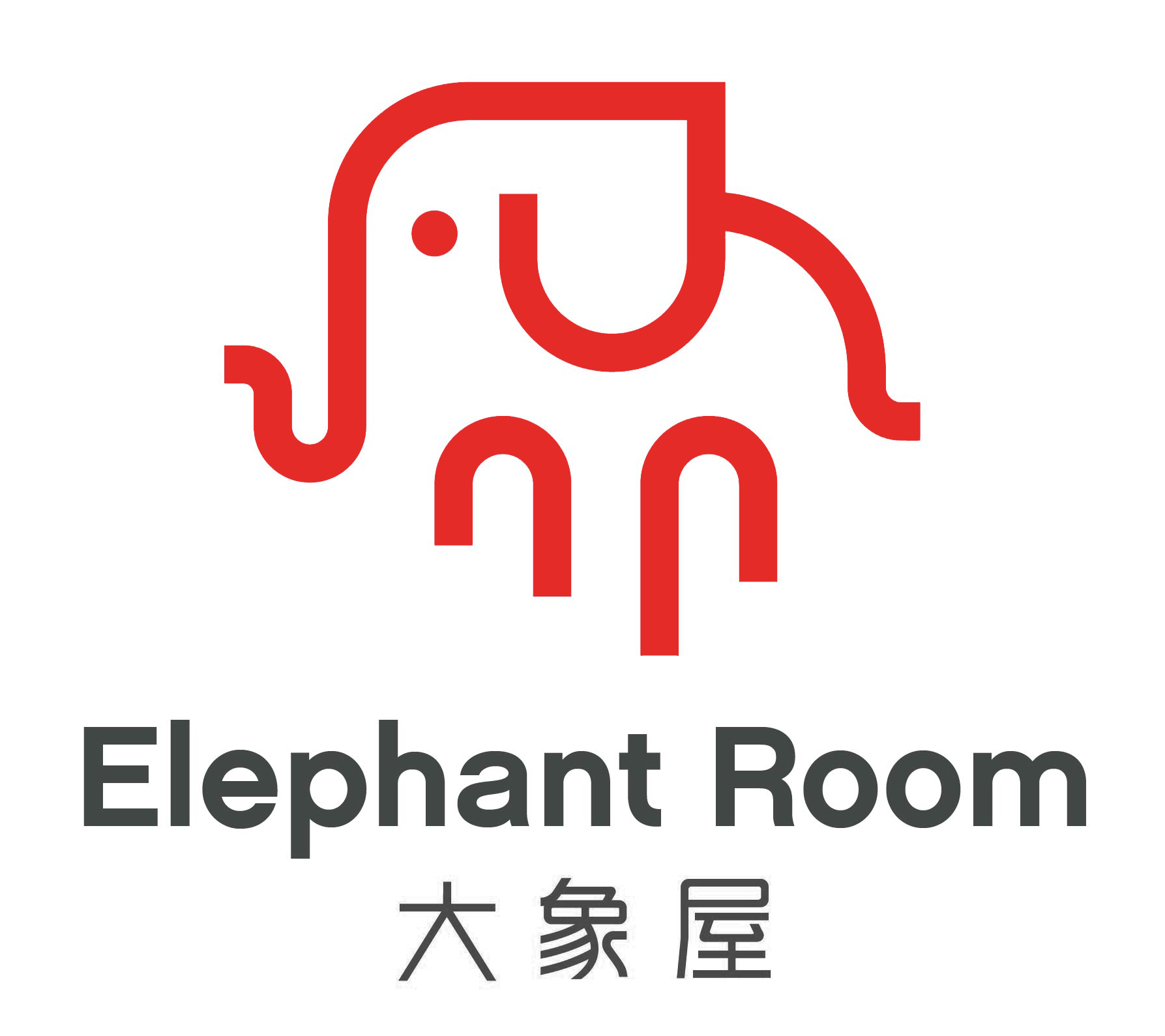
I love this article. As an American in China, I am constantly told to drink more hot water. Funny thing is, when I was back in the states briefly over the summer, it actually seemed strange to drink 冰水.
A nice take on the ever-popular “hot drink vs cold drink” conundrum for foreigners in China. I was there for about 10 years and found it both amusing and sometimes frustrating – especially when a concerned Chinese friend would warn me that I might “be very sick…perhaps die” if I drank ice tea/cold tea in the summer. TCM and folklore have a lot to do with these beliefs, I think, just as the “wives tales” about how long a woman should stay in bed and not wash her hair after giving birth.
Whenever we argue with those who believe in this myth they would just reply there a biological difference between Eastern and Western people, so we shouldn’t take Western lifestyle as an example. But when I visited Japan this summer I realized all of the restaurants there serve cold water ╮( ̄▽ ̄”)╭
Wives tales is definitely a topic worthy its own piece. Thanks for reminding us!
Yes, I have also heard the “biological difference” theory and dismiss it politely as basic ignorance. It also strays dangerously close to the “unique race/master race” notion propagated by some, including white separatists. In discussing it and acknowledging, yes, many Asians are lactose intolerant and/or can’t handle alcohol well, there are millions of Asians in Japan, the US and elsewhere who safely consume cold drinks daily in all weather. And who don’t stay in bed for a month with unwashed hair after giving birth. Wives tales of all sorts are universal. In the US the baby boomers grew up being… Read more »